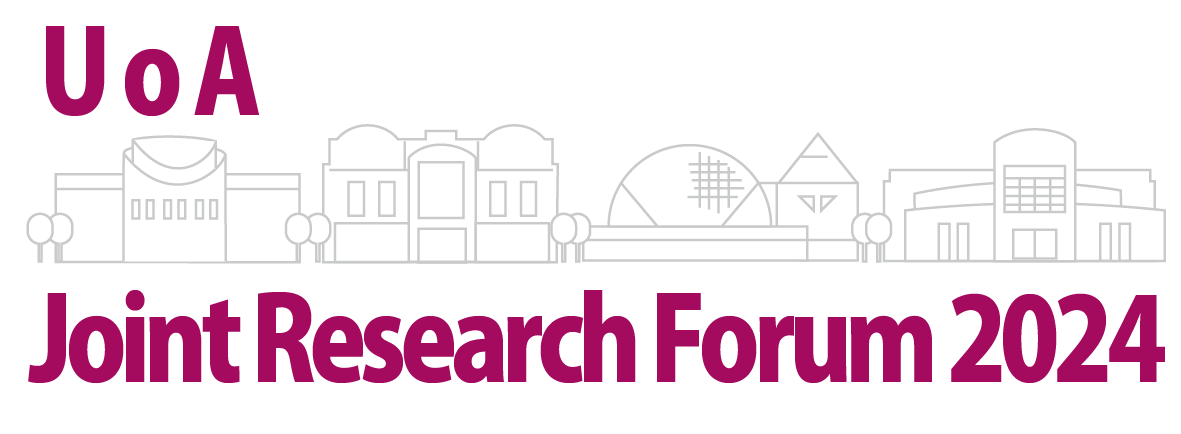
Changes in Knowledge, People, and Society Brought About by AI
- Efforts of the University of Aizu to Adapt to the Rapidly Developing AI Era -
|
With the rapid development of generative artificial intelligence (AI) such as GPT over the past two years, people are talking about the arrival of Artificial General Intelligence (AGI) that will surpass human capabilities in the not-too-distant future. It should also be acknowledged that many professions have recently experienced significant changes due to the emergence of AI technologies capable of chatting, generating images, videos, and programs with human-like abilities. Against this backdrop, computer-related education, research, and new business are becoming increasingly important, and the University and industry must collaborate closely to explore how we can respond to and cooperate in these areas. At this critical juncture, our university aims to provide a platform for keynote speeches and panel discussions to examine and debate these issues from multiple perspectives. |
-
Date: 9:00-17:15 Monday, November 25, 2024
-
Venue: University-Business Innovation Center (UBIC), the University of Aizu
-
Language: Japanese (no English interpretation)
-
Audience: Companies, researchers, teachers, students, and interested members of the general public
-
Organizer: The University of Aizu, CAIST, AI Center, ARC-Space
UoA IEEE Student Branch (Part 3: The Graduate School Fair)
Program:
Part 1: Research Center & Cluster Achievements Presentation
|
9:00 - 9:05 |
Opening Remarks TSUKAHARA Tsuneo, Chairperson of the Board of Executives / President, the University of Aizu |
|
9:05 - 9:20 |
Science and Engineering for Space Development Powered by ICT in Academia and Industries ARC-Space: DEMURA Hirohide |
|
9:20 - 9:35 |
Framework for Robot Software Development with Cyber-Physical System and Interactive Online Test System ARC-Robot: NARUSE Keitaro |
|
9:35 - 9:50 |
Efforts Toward Autonomous Driving for Small Vehicles in IoT Cluster ARC-IoT: OKUYAMA Yuichi |
|
9:50 - 10:05 |
Vision AI System Based Human Activity Recognition and Deepfake Countermeasures ARC-Vision: TOMIOKA Yoichi |
|
10:05 - 10:25 |
Break |
|
10:25 - 10:40 |
Acceleration of Numerical Linear Algebra in Quantum and Astrophysical Simulations High Performance Computing: NAKASATO Naohito |
|
10:40 - 10:55 |
Study for Generating a Geological 3D Map of a Planetary Surface Satellite Data Utilization: OHTAKE Makiko |
|
10:55 - 11:10 |
Computation Meets Communications in the 6G Networks Integrated Computation-Communication Platform: PHAM Tuan Anh |
|
11:10 - 11:25 |
Smart Communication Mechanisms for Building Digital Twins Intelligent Transportation Systems: RAGE Uday Kiran |
|
11:25 - 11:40 |
Agentic Tools for ML System Development Automatic AI System Design: MARKOV Konstantin |
|
12:00 - 13:00 |
Lunch Break |
Part 2: Keynote Speeches and Panel Discussion
|
13:00 - 13:40 |
Keynote Speech 1 HANYU Takahiro, Director and Professor, Research Institute of Electrical Communication, Tohoku University |
|
13:40 - 14:20 |
Keynote Speech 2 NAGAMINE Kuniaki, Associate Professor, Graduate School of Organic Materials Science, Yamagata University |
|
14:20 - 15:00 |
Keynote Speech 3 MATSUBARA Hitoshi, Professor, Department of Information and Computer Science, Faculty of Engineering, Kyoto Tachibana University |
|
15:00 - 16:00 |
Panel Discussion •HANYU Takahiro • NAGAMINE Kuniaki • MATSUBARA Hitoshi Chair: CHEN Wenxi (Professor, the University of Aizu) |
|
16:00 - 16:05 |
Closing Remarks PAIK Incheon, Dean of Graduate School, the University of Aizu |
|
Cluster Poster Exhibition
|
Part 3: The Graduate School Fair - Organizer: UoA IEEE Student Branch
|
16:15 - 17:15 Poster Session by graduate students For more information, please visit the following web page. |
---
- Participation is free of charge (Pre-registration required)
- Part 1, Part 2 Application form: https://forms.gle/vJm3q4S9ZaUbTzfX6
Applications will be accepted on a first-come, first-served basis, and will be closed before the deadline if there are too many applications.

- Venue and parking information MAP.pdf(in Japanese)
- UoA Joint Research Forum 2024 Flyer(Program) UoAJointResearchForum2024_EN.pdf
*Additional information about the forum will also be announced on the University of Aizu's official social media accounts below.
X (Formerly Twitter) https://x.com/univ_aizu
Facebook https://www.facebook.com/univaizu/
Keynote Speech Outline
Keynote Speech 1 "Prospects of Edge AI Computing Based on Nonvolatile Logic" HANYU Takahiro
Nonvolatile spintronic devices have potential advantages such as fast read/write, and high endurance together with back-end-of-the-line compatibility, which offers the possibility of constructing not only stand-alone RAMs and embedded RAMs that can be used in conventional VLSI circuits and systems, but also standby-power-free and high-performance VLSI processors, where a new logic-circuit style, called "Nonvolatile (NV) Logic-in-Memory (LIM) Architecture" that merges nonvolatile storage elements into CMOS logic-gate circuits is used. In this presentation, the advantages of employing spintronic devices, especially magnetic tunnel junction (MTJ) devices combined with CMOS circuits are discussed and the current status of the MTJ-based VLSI computing paradigm is presented along with its prospects and remaining challenges.
Keynote Speech 2 "Wet Interface Engineering for the Skin-Surface Chemical Sensing" NAGAMINE Kuniaki
The Nagamine Lab at the Yamagata University Graduate Department of Organic Materials Science is developing sensing technology based on a new method that enables non-invasive/nondestructive extraction of chemical substances contained in a biological surface by simply wetting it with an aqueous solution (wet interface). In this keynote speech, we will discuss efforts to apply this technology to healthcare, smart agriculture, and other fields.
Keynote Speech 3 "How Should We Live with Advanced AI?" MATSUBARA Hitoshi
In the 2000s, AI technology has made rapid progress, with practical applications centered on image and speech recognition. In the 2020s, AI has become able to successfully generate language, making natural language processing a practical application. In this presentation, we will discuss how humans should deal with these advances in AI.
---
Research Center & Cluster Achievements Presentation Keywords
Archived Data Science for Lunar and Planetary Explorations / Cyber-Physical Systems / Artificial Intelligence (AI) / Machine Learning / Circuit Design / Pattern Recognition / High-Dimensional Data Visualization / Creative Support Systems / Big Data / Remote Sensing / Cyber Security / Pattern Mining / AI Edge Devices / AI Agents / Medical Engineering / Data Science / High Performance Computing / Quantum Computing Applications / 6G Network Computing / Industry-Academia Collaboration / Cooperative Research


